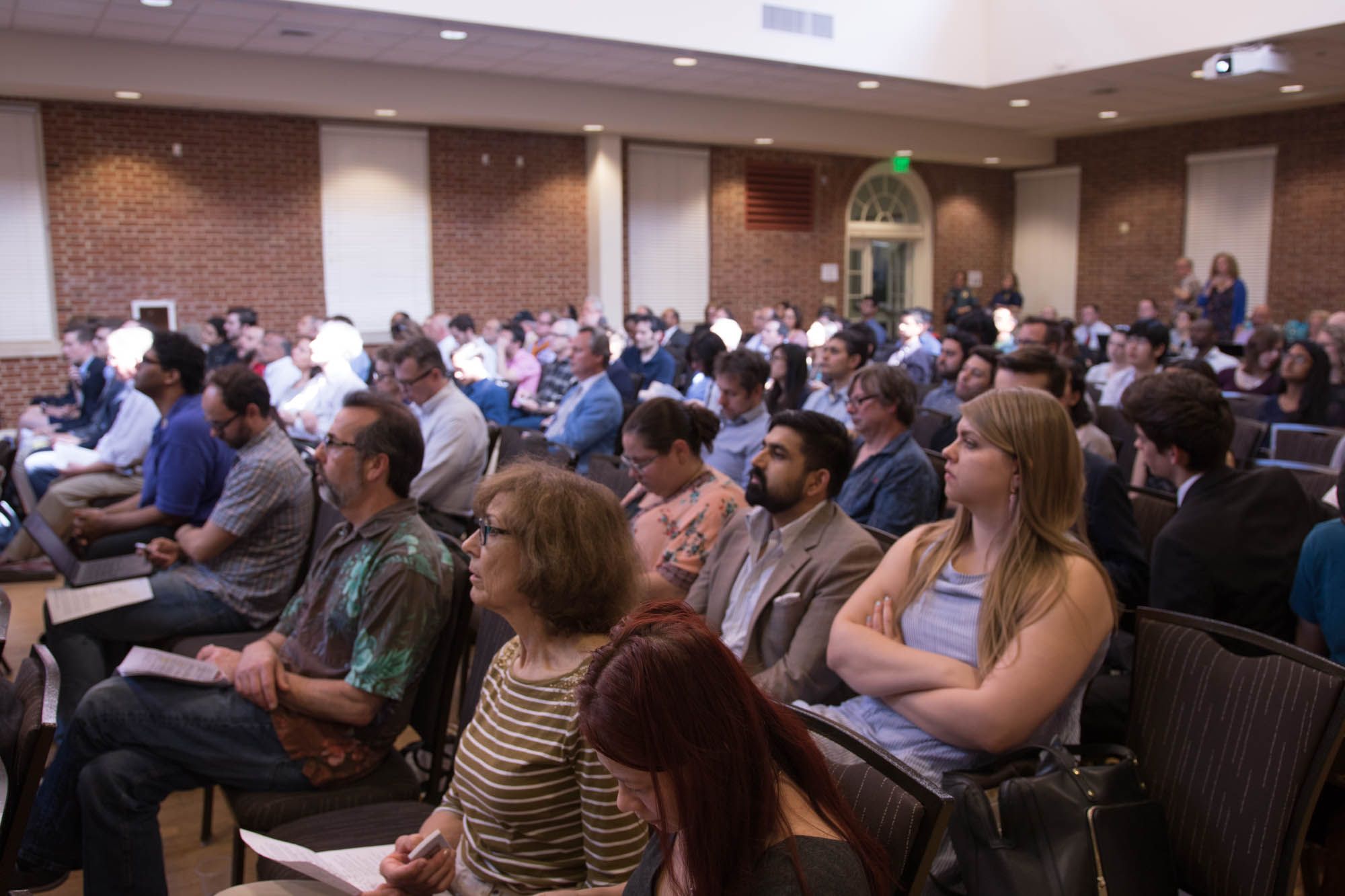The University of Maryland Senate voted Wednesday afternoon to request more university employee and student representation on presidential search committees.
The body requested that the committee’s composition mirror that of the University Senate, “with a significant majority of seats being held by faculty, staff, and student representative appointed by the Chancellor” from a Senate-suggested pool of candidates.
The final vote was 67-14 with 13 abstentions.
This measure comes after university President Wallace Loh unexpectedly announced his retirement, effective in June, at a Board of Regents press conference Oct. 30, amid turmoil in the athletic department. At the body’s last meeting, it also passed a resolution affirming Loh’s planned departure.
The regents reportedly forced Loh out because of a conflict over head football coach DJ Durkin. The board wanted Durkin to stay on, despite an investigation finding he bore responsibility for abuse in the program; Loh ended up breaking from the board’s recommendations and firing Durkin.
Two days after Loh announced his retirement, this university’s provost and all 15 academic deans signed a letter castigating the regents for their “interference” in the school’s “governance matters,” and calling for Loh to remain president.
[Read more: At UMD panel, football investigator says race wasn’t a factor in abusive team culture]
Stephen Kenny, the behavioral and social sciences representative who drafted the senate legislation, said the resolution came from a push from student groups for more input in the presidential appointment process.
Just last week, more than 20 student groups called for more diverse representation in the search for this university’s new president, among other requests, at a rally dubbed “Fire the Liars.”
Kenny, a sophomore government and politics major, said the fallout from the football scandal was seen as “the last straw in unrepresentativeness in the administration, the presidential search committee and the Board of Regents.”
“Their cries for justice and for change inspired me to craft this resolution,” he said.
[Read more: Here’s what would need to happen to make UMD’s student athletics fee opt-in]
In the past, presidential search committees have included few student voices.
When Dan Mote announced in 2010 that he would step down as university president, the search committee for his replacement had one undergraduate student and one doctoral student. By comparison, the committee also featured nine professors and deans from this university, and several representatives of other groups and organizations, such as the Alumni Association and the University System of Maryland Foundation.
J.T. Stanley, a senior individual studies major, said more students will be needed on the search committee to better represent student concerns.
“We need to have more representation, and that needs to be diversified to reflect the diverse opinions and needs and the continuity of those needs and opinions and the same goes for other constituencies,” said Stanley, who proposed the resolution. “I can speak to students, but I can argue that the same issues are faced by faculty and staff.”
The proposal was originally created with the intent to include more members of marginalized communities — such as racial minorities and members of various gender identities — in the process, as well as students who are not members of campus government groups. Both of these provisions were axed in the amendment process.
Harry Huntley, the agriculture and natural resources college representative, said he thinks it would be “perfectly fine” for the proposal to include these stipulations.
“These are just examples of different demographics we could include when considering diversity,” he said. “I know that the SEC will do a good job regardless.”
But Marvin Breslow, the emeritus faculty representative, thought it wasn’t likely for the proposal to gain support in the legislation’s approval process. University Senate decisions must be approved by the president — and in this case, University System of Maryland education chancellor Robert Caret — to become university policy.
“It’s an interesting idea, but having served on a presidential committee, I just don’t see it being accepted further up,” Breslow said.
To create the Senate-suggested pool of possible committee members the resolution referred to, the body voted 37-30 with three abstentions to charge the Senate Executive Committee with compiling the group.
However, some representatives took issue with tasking the senate’s busiest committee to submit names for recommendation while the Chancellor, who appoints the presidential search committee, might not approve of diversifying it.
“We should first devote our attention and energy into arguing the case that this selection committee needs to be restructured,” said Kim Coles, the College of Arts and Humanities representative for tenured faculty.
The executive committee will discuss how to select the names for the committee at their next meeting, said Chris Walsh, the committee’s head.



